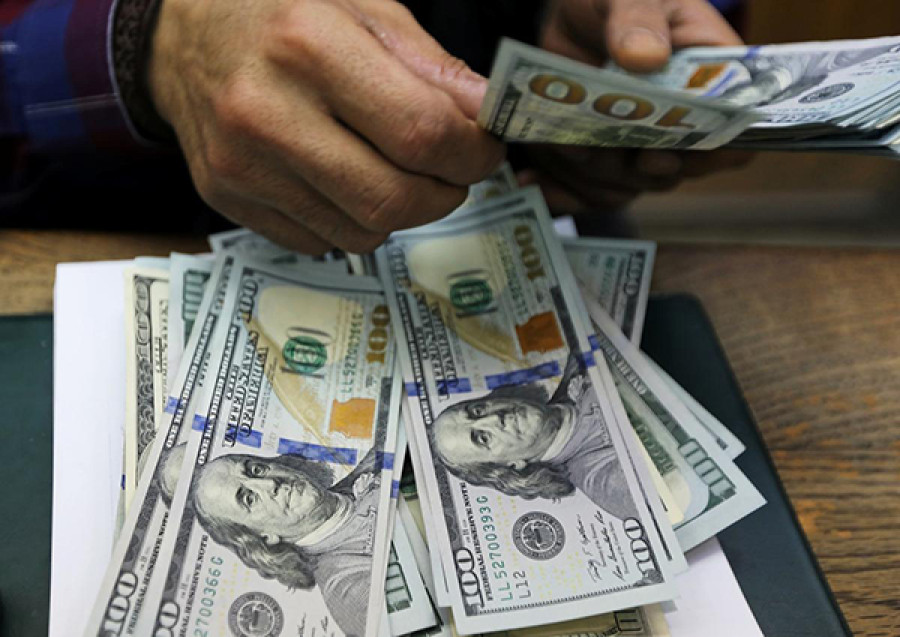Money
Central bank broadens sources of loans in foreign currency
Microfinance companies are now permitted to borrow from pension funds and hedge funds in addition to banks abroad.
Rajesh Khanal
Previously, they were permitted to borrow only from foreign banks. Issuing a circular on Monday, the central bank broadened their credit sources.
Laxmi Prapanna Niroula, spokesperson for Nepal Rastra Bank, said they revised the provision for microfinance companies to bring more foreign currency and improve the liquidity position of banks and financial institutions.
With even commercial banks struggling to obtain foreign currency loans, Nepal Rastra Bank has turned its focus on microfinance companies that operate with little capital and have limited access in the international arena.
According to the current macroeconomic report published by the Nepal Rastra Bank, the country’s foreign currency reserves had shrunk to $9.50 billion as of mid-July, down from $10.08 billion in the corresponding period of the previous year. This amount is enough to import goods and services for 7.8 months.
Nepal Rastra Bank has been encouraging banks to obtain loans from foreign companies to ease the liquidity crunch too. Central bank officials said most banks had not expressed interest to obtain loans in foreign currency despite the introduction of a lenient policy last year. “As of now, only two banks have taken loans in foreign currency,” said Niroula. Bankers said only a few banks had followed the advice due to the absence of a hedging solution. NMB Bank has taken a Rs16 billion project loan, the largest so far, from the Netherlands Development Finance Company, a Dutch development bank. Similarly, NIC Asia Bank has started the process to obtain a loan from International Finance Corporation, a member of the World Bank Group.
Sunil KC, chief executive officer of NMB Bank said foreign institutions were reluctant to offer loans to Nepali banks due to the failure to enforce a hedging solution effectively. “Although regulations concerning hedging solutions have been issued, the central bank is yet to develop a mechanism to implement them,” said KC.
Under a revised provision, Nepal Rastra Bank has increased the maximum interest rate microfinance companies can pay on loans obtained from foreign sources to 6 month Libor (London Interbank Offered Rate) plus 4 percent.
“The interest rate on such foreign currency borrowing should not exceed 6 month Libor plus 4 percent that includes all applicable fees,” Nepal Rastra Bank said in its directive. Earlier, the maximum interest rate was fixed at 3 percent.
Nepal Rastra Bank has told microfinance institutions that their total capital mobilisation should not exceed 30 times their core (tier 1) capital. There are 91 microfinance companies in operation in the country.
As per the central bank’s provision, microfinance companies can borrow up to 25 percent of their primary capital from foreign financial sectors. These companies can lend the money only in specified sectors that contribute to the country's foreign exchange earnings, namely tourism, agriculture, micro enterprise, micro hydro and renewable energy, income generating activities and self-employment and poverty alleviation, among others.
Ram Chandra Joshee, chief executive officer of Chhimek Laghubitta Bittiya Sanstha, said most microfinance companies were unlikely to obtain loans in foreign currency. “As only a few of these companies have a primary capital of more than Rs1 billion, the amount of money they can bring into the country will also be small,” said Joshee.
Meanwhile, Nepal Rastra Bank has permitted cardholders permitted to carry out transactions in foreign currency to transfer funds abroad from their accounts. The central bank came up with the provision in response to complaints that card holders were having a hard time after they were barred from withdrawing money from foreign banks due to the controls imposed after the recent ATM hacking incident.
Issuing a circular on Thursday, the central bank allowed foreign currency transfers to card holders residing abroad. Sarita Adhikari, head of the foreign exchange management department of Nepal Rastra Bank, said the amount to be transferred cannot exceed the limit set by the card issuers.
Following the incident of ATM hacking by Chinese citizens, the central bank blocked the hosting and switching system of Nepal Electronic Payment Systems (NEPS) that allows cardholders to withdraw money from foreign banks.




 9.83°C Kathmandu
9.83°C Kathmandu















